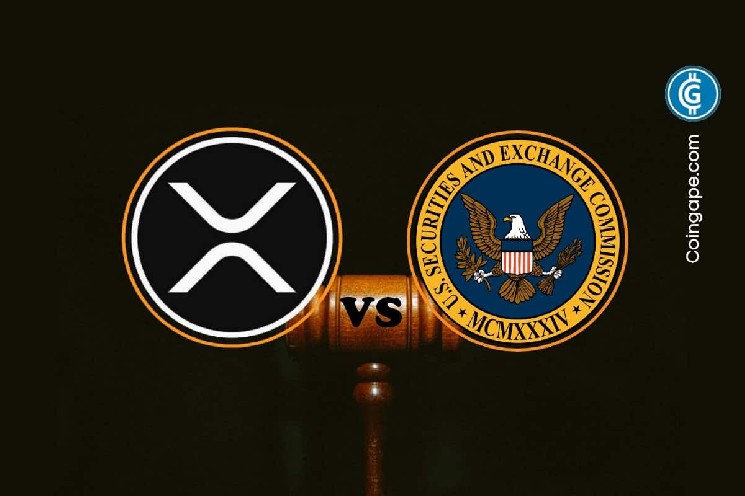XRP Lawsuit: SEC, Ripple Files Joints Summary Judgement Proposal

The U.S. SEC and Ripple’s defendant on Thursday filed a joint prosal regarding the upcoming Summary Judgement in the XRP lawsuit. Both parties are seeking the court’s approval to over sealing issues relating to the motions yet to be filed in this case.
XRP Lawsuit to end soon?
According to the letter filed, the proposal ensures complete public access to the parties’ briefs in the XRP lawsuit. However, it mentioned that any of the proposed redactions are expected to be minimal.
In order to maintain efficiency, the parties come together to suggest a schedule for redactions soon. This will be done just after the reply briefs are filed. It added that this will allow both parties to meet and confer on different matters in the XRP lawsuit.
The proposal stretches from September 13, 2022, to December 22, 2022. The schedule will begin with parties filing all materials relating to the summary judgment motions under seal. This will eventually include briefs, statements, and supporting exhibits.
Later, Ripple defendants and SEC will meet and confer on September 15, 2022. This meeting will identify redactions sought by both the briefs to brace summary judgment motions in XRP Lawsuit. However, it will be important to see when will this process will address the Hinman docs issues.
What does the court suggest?
However, the schedule set by the court mentions that opening motions are due on September 13, 2022. While oppositions are due by October 18, 2022. The replies to these motions are needed to be filed by November 15, 2022.
Meanwhile, the Defendants in the XRP lawsuit note that it is important to file public versions of the summary judgment briefs. It is related to the two sets of amici which will need access to the legal briefs so that they can propose their own amici filings.
John Deaton, Amicus Curiae in the XRP lawsuit highlighted that the DCC filed a pro hac vice motion. However, it was denied without prejudice but somehow they refiled it. He added that they need to read the filed briefs by the parties before making a decision to submit an amicus brief.






 Bitcoin
Bitcoin  Ethereum
Ethereum  Tether
Tether  USDC
USDC  TRON
TRON  Dogecoin
Dogecoin  Cardano
Cardano  Monero
Monero  Bitcoin Cash
Bitcoin Cash  Chainlink
Chainlink  LEO Token
LEO Token  Stellar
Stellar  Zcash
Zcash  Litecoin
Litecoin  Hedera
Hedera  Dai
Dai  Cronos
Cronos  OKB
OKB  Tether Gold
Tether Gold  Ethereum Classic
Ethereum Classic  KuCoin
KuCoin  Cosmos Hub
Cosmos Hub  Gate
Gate  Algorand
Algorand  VeChain
VeChain  Dash
Dash  Stacks
Stacks  Tezos
Tezos  TrueUSD
TrueUSD  IOTA
IOTA  Decred
Decred  Theta Network
Theta Network  Basic Attention
Basic Attention  NEO
NEO  Synthetix
Synthetix  Qtum
Qtum  0x Protocol
0x Protocol  Ravencoin
Ravencoin  Zilliqa
Zilliqa  DigiByte
DigiByte  Nano
Nano  Holo
Holo  Siacoin
Siacoin  Numeraire
Numeraire  Waves
Waves  Ontology
Ontology  Enjin Coin
Enjin Coin  Status
Status  Hive
Hive  BUSD
BUSD  Lisk
Lisk  Pax Dollar
Pax Dollar  Steem
Steem  Huobi
Huobi  OMG Network
OMG Network  Bitcoin Gold
Bitcoin Gold  NEM
NEM  Augur
Augur